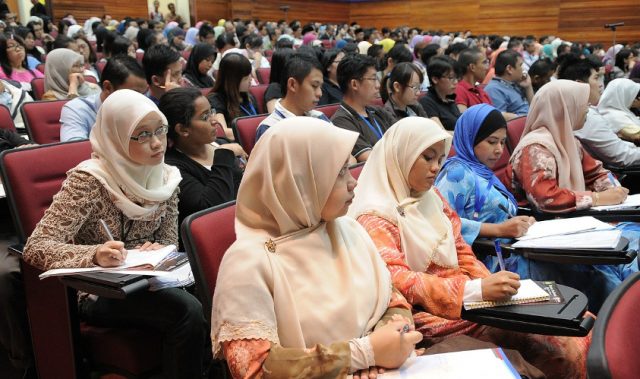
AsianScientist (Feb. 10, 2012) – Hopkins has launched the China STEM program in partnership with Nanjing University, reports a Johns Hopkins University publication, The News-Letter.
Beginning in the summer of 2012, this eight-week long summer program will take place at the Hopkins-Nanjing University Center for Chinese and American Studies in Nanjing, and at Peking University in Beijing.
First proposed in 2009, the program will be led by program director Dr. Ninping Yu and be open to Hopkins students, students from other universities, and professionals.
It will offer a mixture of intensive language training in small classes, research seminars, personal interactions with Chinese scholars and scientists, and experiential visits to laboratories, hospitals, and academic institutions in Nanjing and Beijing.
“We imagine a future in which Chinese language will be essentially important to specialists in medicine, public health and engineering – and we look forward to providing language training to students who also share that vision,” said Tyree Powell, the academic program coordinator for Hopkins’s East Asian Studies Department.
A January 2012 report by the National Science Board (NSB), the policymaking body for the National Science Foundation (NSF), revealed that between 1999 and 2009, the U.S. share of global R&D dropped from 38 to 31 percent, whereas Asia’s share grew from 24 to 35 percent during the same time.
In China alone, R&D growth increased a stunning 28 percent in a single year (2008-2009), propelling it past Japan and into second place behind the United States.
However, there has been a scarcity in classes for Chinese language training in the United States, said The News-Letter.
“Hopkins aims to train a new generation of American scientists that possess the advantage of bilingualism as science globalizes, especially with China’s growing role. This new generation will gain the possibility of obtaining careers in Asia,” said The News-Letter article.
——
Source: National Science Foundation; The News-Letter.
Disclaimer: This article does not necessarily reflect the views of AsianScientist or its staff.












